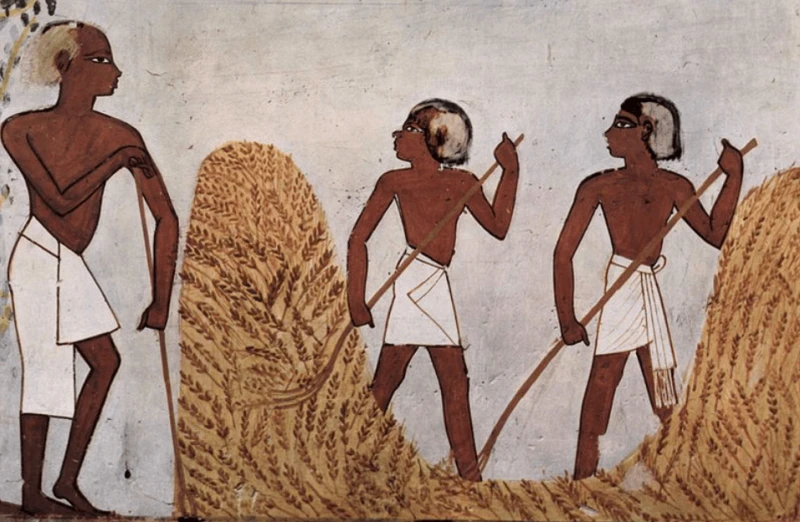‘Paying the price for productivity’: Studying ancient barley, safflower and lentil grains can help us recover lost nutrients
‘Paying the price for productivity’: Studying ancient barley, safflower and lentil grains can help us recover lost nutrients


What can we learn from the past to address modern problems in food quality and nutrition?
This is the question posed by Dr Frits Heinrich [of the Vrije Universiteit Brussel], who together with colleagues is assessing the nutritional composition of ancient crops. “We are doing this with the help of a unique collection of perfectly preserved, desiccated… plant remains from the Greco-Roman town of Karanis in Egypt, “he explained.
Although results are preliminary, Dr. Heinrich told delegates the team has already made ‘interesting observations.’
“The most important one is that ancient crops on average have a far greater mineral content than their modern counterparts.”
Moving forward, the researchers plan to investigate the micronutrient profiles of crops from different periods and regions, as well as expand their nutritional parameters to include vitamins, amino acids, gluten and anti-nutrients such as phytate to build a ‘more complex’ nutritional profile of these crops.
At the same time, Dr Heinrich and his team are working with biotechnologists to investigate the benefits of ancient food preparation and processing practices, such as extensive mixing, to examine their potential for modern applications.
This is an excerpt. Read the original post here.

 | Videos | More... |

Video: Nuclear energy will destroy us? Global warming is an existential threat? Chemicals are massacring bees? Donate to the Green Industrial Complex!
 | Bees & Pollinators | More... |

GLP podcast: Science journalism is a mess. Here’s how to fix it

Mosquito massacre: Can we safely tackle malaria with a CRISPR gene drive?

Are we facing an ‘Insect Apocalypse’ caused by ‘intensive, industrial’ farming and agricultural chemicals? The media say yes; Science says ‘no’
 | Infographics | More... |

Infographic: Global regulatory and health research agencies on whether glyphosate causes cancer
 | GMO FAQs | More... |

Why is there controversy over GMO foods but not GMO drugs?

How are GMOs labeled around the world?

How does genetic engineering differ from conventional breeding?
 | GLP Profiles | More... |

Alex Jones: Right-wing conspiracy theorist stokes fear of GMOs, pesticides to sell ‘health supplements’




 Viewpoint — Fact checking MAHA mythmakers: How wellness influencers and RFK, Jr. undermine American science and health
Viewpoint — Fact checking MAHA mythmakers: How wellness influencers and RFK, Jr. undermine American science and health Viewpoint: Video — Big Solar is gobbling up productive agricultural land and hurting farmers yet providing little energy or sustainabilty gains
Viewpoint: Video — Big Solar is gobbling up productive agricultural land and hurting farmers yet providing little energy or sustainabilty gains Trust issues: What happens when therapists use ChatGPT?
Trust issues: What happens when therapists use ChatGPT? Fighting deforestation with CO2: Biotechnology breakthrough creates sustainable palm oil alternative for cosmetics
Fighting deforestation with CO2: Biotechnology breakthrough creates sustainable palm oil alternative for cosmetics California, Washington, Oregon forge immunization alliance to safeguard vaccine access against federal undermining
California, Washington, Oregon forge immunization alliance to safeguard vaccine access against federal undermining 30-year-old tomato line shows genetic resistance to devastating virus
30-year-old tomato line shows genetic resistance to devastating virus The free-range chicken dilemma: Better for birds, but with substantial costs
The free-range chicken dilemma: Better for birds, but with substantial costs ‘You have to treat the brain first’: Rethinking chronic pain with Sanjay Gupta
‘You have to treat the brain first’: Rethinking chronic pain with Sanjay Gupta
